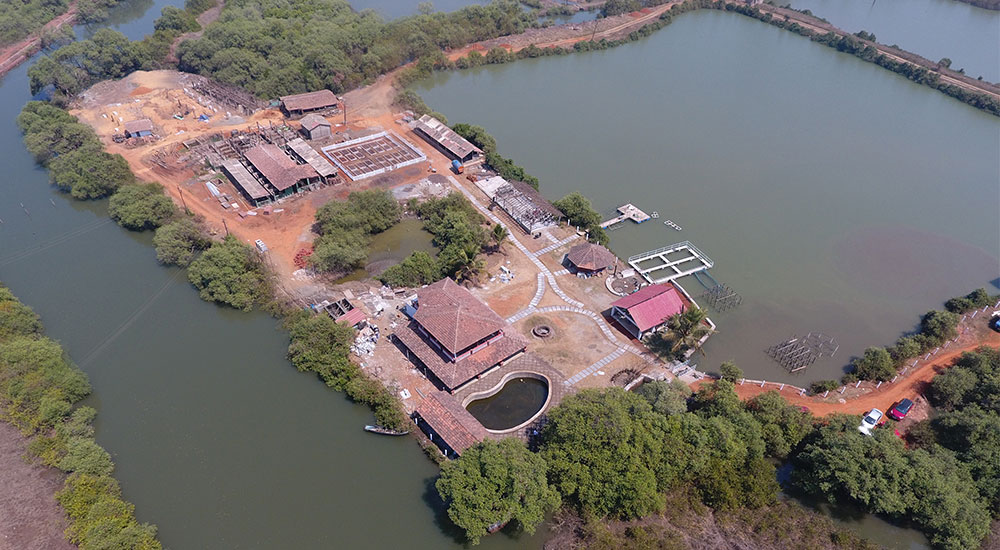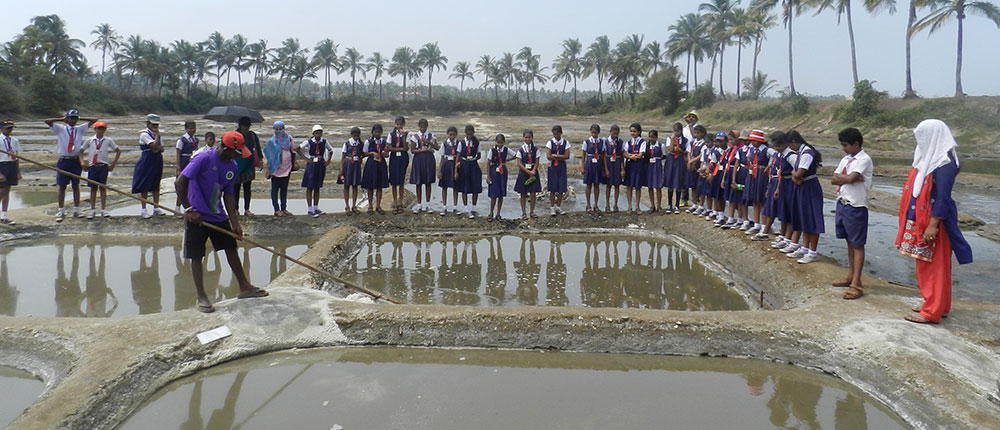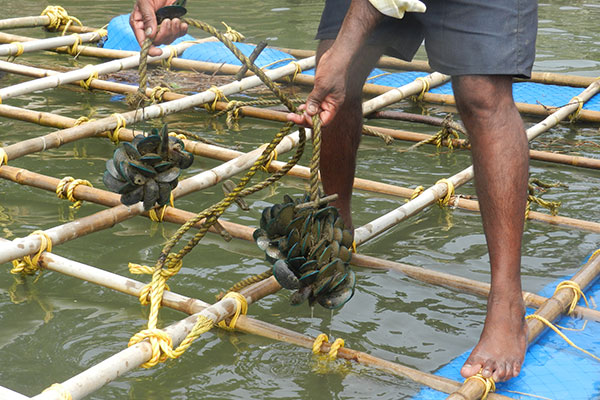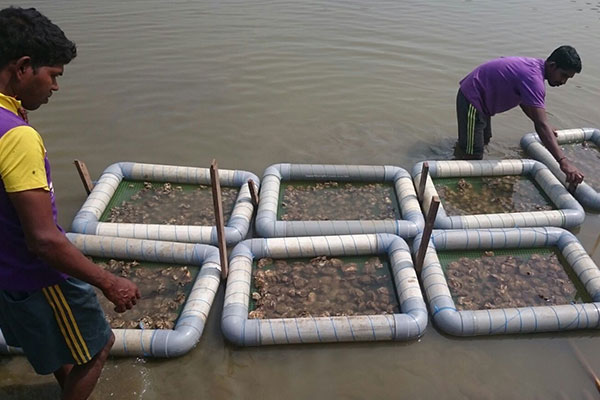TERI Coastal Education Hub
Coastal wetland carries a wide variety of marine biodiversity (flora and fauna) which needs to be conserved.

The services they provide influences human welfare both directly via food consumption and indirectly via support and regulatory services. The verdict is that these functions and services are increasingly under threat from growing pressures of overfishing, water contamination, coastal habitat destruction and loss of biodiversity. Goa, being one of the very popular tourist destinations on the west coast of India and having fragile resources, bears the stress of the dependent local communities, which includes floating populations and their ecological footprints. Goa has many traditional and indigenous technologies and wisdom that are practiced by the local communities. Therefore, conservation of these resources is imperative. However, these resources are mostly neglected as only select individuals are aware about them. Hence, there is an urgent need for the youth and society at large to reacquaint, appreciate and deepen their knowledge about these coastal and marine resources.
The Coastal Educational Hub funded by Nave Marg Foundation, covering an area of approximately 58,000 sq.m, is situated in the wetland area of Batim, Goa Velha, Goa. The wetland provides a unique element to the Hub as it is a mosaic of multiple ecosystems where diverse activities are generally carried out, such as solar salt harvesting, traditional fishing, traditional aquaculture and agriculture-related activities (khazan and sluice gate technology). The tidal water source to these areas of the Hub is through a creek that opens into the Zuari River Estuary.

Some of the salient features of the site include:
- Solar salt pan processing and harvesting - 15,000 sq.mt
- Traditional aquaculture ponds - 20,000 sq.mt and
- Agricultural land (including livestock & farmhouse) - 23,000 sq.mt.
To know more about the tour features click here.
One of the aspects by which conservation of an ecosystem can be made possible sustainably, is through Environment Education. The traditional and indigenous technologies and wisdom can be recognized by students, youth, farmers and visitors through such educational tours and training programmes. It has been clearly recognized that students show the most significant levels of interest when presented with those environmental issues that are of pertinence in the local context, and are highly predisposed to absorbing scientific knowledge about the natural world that makes up their immediate surroundings. Keeping this in mind, the Hub caters to students and youth in order to foster greater interest and understanding of the world around them. Additionally, educational tours provide students with an opportunity to experience what lies beyond their horizon. Educational tours introduce students to new experiences, teaching and learning techniques, local people and lifestyle. In a way they also help students make critical decision about their career. Overall well-organised educational tours to such coastal wetlands would largely help in conserving such niche ecosystems.


The Hub focuses on the below features:
Mangroves - are natural capital that provides a wide array of goods and services in the coastal environment for society as a whole. The ecological functions of mangroves and the high value of the ecosystem are highlighted by the thick mangrove vegetation developed at the Hub on the periphery of the creek. The students and visitors at the Hub will make an acquaintance with intrinsic and unique values of mangroves for creation of awareness and protection.
The Khazan - is a self-operational system, utilizing tidal, hydro, and solar energy, and has agriculture-aquaculture-salt panning functions that are highly complex but eco-friendly. This unique and endemic technology has been present in Goa for over three millennia, and their protection is the conservation of local culture and global biodiversity. Learning the components of the khazan, sluice gate technology, and solar salt panning and awareness of their practical and cultural importance will be advanced at the Hub to aid in their conservation, and fostering appreciation of our heritage. Traditional fishing methods will also be exhibited to the students and visitors.
Aquaculture - holds great importance in contributing to food security and nutrition, and in generating employment. Natural fisheries the world over are overexploited, and therefore aquaculture will be vital to meeting fish demand. AquaTech Park at the Hub such as mussel culture, oyster culture, pearl spot fish cage culture and crab farming demo’s and fish processing will aid in entrepreneurship development, livelihood diversification and woman empowerment. Sustainable aquaculture techniques and food packaging/processing will be illustrated to the students.
Organic Farming & Sustainable Technologies - the prolonged usage of chemicals in farming and agriculture has produced human health hazards and caused environmental pollution and groundwater contamination. To combat such effects, organic farming is being promoted for sustainable production, income, and socio-economic development of the farming community. Students, farmers and visitors at the Hub will have a learning experience about livestock rearing, organic kitchen gardening, vermicomposting, and rain water harvesting, and biogas plants utilizing livestock waste and kitchen waste.
Training Centre - other established components of the Hub are the Training Centre where the knowledge of the students will be further increased and enhanced, and hands-on training on items useful in daily life will be given. Besides, different sustainable technologies will be showcased.
